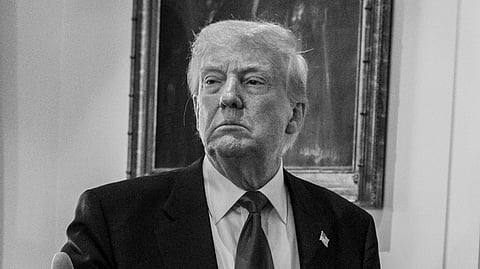

President Donald Trump's threat to impose tariffs on pharmaceutical imports has prompted a significant agreement with Pfizer, potentially averting broader levies for the industry.
The deal, announced on Tuesday, involves voluntary price reductions and substantial U.S. investments, offering relief amid stalled negotiations.
This development comes as the administration seeks to lower drug costs through a combination of incentives and pressures.
Pfizer agreed to lower prices for its drugs sold to Medicaid patients to match the lowest rates offered in other developed nations, known as most-favored-nation pricing.
The company also committed to guaranteeing similar pricing for new drugs across Medicare, Medicaid, and commercial payers.
In exchange, Pfizer receives a three-year exemption from pharmaceutical-specific tariffs, contingent on further domestic investments.
The firm pledged $70 billion for U.S. manufacturing and research, building on prior commitments.
This move aligns with efforts by other major drugmakers, including Eli Lilly, Johnson & Johnson, AstraZeneca, AbbVie, Roche, Novo Nordisk, and Amgen, which have recently announced expansions in U.S. facilities to foster goodwill with the administration.
The agreement boosted investor confidence, with Pfizer's shares rising alongside those of peers.
Eli Lilly's stock closed 5% higher, while AbbVie and AstraZeneca gained over 3%.
Johnson & Johnson and Bristol Myers Squibb each saw increases exceeding 2%.
The tariff strategy intensified after price-cut talks faltered earlier this year.
Trump had set a September 29 deadline for 17 top drug companies to propose reductions, following a May executive order reviving the most-favored-nation policy.
When progress stalled, the administration announced 100% tariffs on branded-drug imports starting October 1, exempting firms advancing U.S. production.
Commerce Secretary Howard Lutnick stated that companies would complete negotiations before levies under Section 232 authority are finalized.
A White House official emphasized the president's commitment to lowering prices, prepared to use tariffs against non-compliant firms.
Centers for Medicare and Medicaid Services Administrator Mehmet Oz noted the Pfizer breakthrough occurred last week.
Analysts view the deal as a template for others, potentially shifting focus from punitive measures.
The administration anticipates similar pacts soon, with Eli Lilly expected next.
For many drugmakers, Medicaid exposure remains limited — under 5% of U.S. sales for Pfizer and Bristol Myers Squibb, and around 8% for Eli Lilly and AbbVie — making concessions manageable.
Exceptions like Gilead, with 20% reliance, face greater stakes.
This approach ties price concessions to manufacturing repatriation, aiming for 30% to 80% reductions while addressing import dependencies.